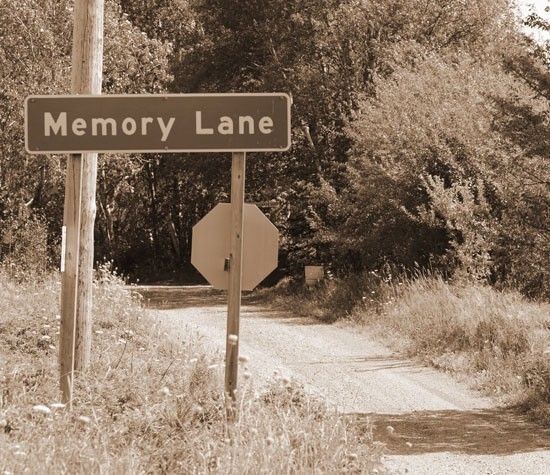Triple-paned windows and a rising plain
I have a question to ask you in a moment, and to answer it you will need to consider this passage:The triple-pane floor-to-ceiling windows of Hollister’s study frame the rising plain to the west, the foothills and the distant Rocky Mountains that were long ago born from the earth in cataclysm, now dark and majestic against a sullen sky. It is a view to match the man who stands at this wall of glass. The word cataclysm is a synonym for disaster or upheaval but also for revolution, and he is the leader of the greatest revolution in history. The greatest and the last. The end of history is near, after which his vision of a pacified world will endure forever.The question: What do you make of this passage? And let’s get specific. To start with, what do you make of the very first sentence?***A little pause for thought.***I hope you agree that the sentence is bad. If the sentence just ran like this:The triple-pane floor-to-ceiling windows of Hollister’s study frame the rising plain to the west.you could just about digest it. Even in that much abbreviated form (14 words versus 39) you’re being asked to compose these elements:The windows are triple-panedThey run floor-to ceilingThey are in the study belonging to someone called HollisterA rising plain is visible through the windows.The plain runs west from the windows.That’s perhaps not quite too much to assemble in general (though I can’t see myself writing the sentence under any circumstances), but this is the opening sentence of a book. The reader therefore comes to the sentence with no knowledge of where they are, or with whom, or under what circumstances. That means there’s no frame of expectations to work with, so writers generally need to feed the reader with nibbles that can build into whole mouthfuls once the reader is better oriented.The full version of the sentence, however, adds in these additional elements:There are foothillsAnd the Rocky MountainsThe Rocky Mountains were born long ago, and in cataclysmThese mountains are now looking dark and majesticThe sky is sullenThis is quite clearly an awful lot of ingredients, particularly in an opening sentence. Worse still, the sentence shifts focus. The first part of it is clearly talking about windows. The last part is talking about mountains. What are we meant to be focusing on? It’s just not clear. (Or, as it happens, even correct. The Rocky Mountains weren’t born in cataclysm. They formed when two tectonic plates ran gently together, thereby pushing the earth upwards. That process ran for about 30 million years and is extremely slow, not even one millimetre a year. You don’t think of the Himalayas as a zone of cataclysm, but the exact same process is in operation there right now and happening much faster.)Oh yes, and if we were being mean, I think we’d suggest that the adjectives (dark, majestic, sullen) are all rather shopworn in their obviousness.OK. So we don’t like the first sentence. The second sentence feels a bit better:It is a view to match the man who stands at this wall of glass.I never really like starting a sentence with the empty “It is” or “There is”. It’s better generally to bring a proper subject to the front, so for example:The view matches the man who stands at this wall of glass.So, boof, an easy improvement, but not a huge one. Let’s have a think about sentence three:The word cataclysm is a synonym for disaster or upheaval but also for revolution, and he is the leader of the greatest revolution in history.This is a remarkable sentence, no? Sentence one dealt with windows and (awkwardly) mountains. Sentence two homed in on the figure of a man, who clearly needs to be the centre of attention here. Then sentence three, weirdly, starts telling us basic (ie: not interesting) dictionary facts about the meaning of the not-very-obscure word cataclysm, then jumps back to the man-at-the-window with a hopelessly contrived segue. (“This mountain range was formed in cataclysm [except it wasn’t]. Cataclysm can mean revolution. And this man is a revolutionary. Neat, huh?”)The feeling engendered in a competent reader is likely to be one of extreme awkwardness – like you’re talking to a boring man in a pub, and he leans in too close, and his breath smells of beer and bacon-flavour crisps, and he tells you something which you know to be untrue of the mountains outside, and you notice that his toupee has slipped. Yikes. You want to get away, but there’s something desperately adhesive about the whole situation.Clarity (and an exit from the pub-situation) comes with the remainder of the paragraph. This chap at the window is a revolutionary. He has Dr Evil style plans for the planet. Paragraph two talks about his need to kill someone. Paragraph three discusses his intention to make the kill himself.Overall? Your impression?I think you’re going to agree with me that the writing is awkward. Needs improvement before it goes to a literary agent.The trouble is, we’ve just discussed the opening paragraphs of a Dean Koontz novel, The Night Window, and guy has sold 450 million or more novels worldwide. So he’s doing something right.And –?Well, I don’t quite know what to say. I’m certain that I’m correct in picking apart the prose the way I did. And I most certainly know that I could never bring myself to write those sentences. Yet perhaps their badness is part of what attracts Koontz’s readers. Here are some possibilities:The first sentence is overfilled with information, but perhaps that presents Koontz as a fount of knowledge – establishes him as some kind of authority.For that reason it doesn’t matter that his geology is dubious or that his vocabulary-facts are roughly ninth grade.His readers are probably interested more in grand external story (the biggest revolution in history) than in fine interior details. The fact-first presentation style somehow authorises those preferences. The subsequent material about Hollister’s plans to kill people confirm that we’re in graphic novel / James Bond territory, not anything more refined.One way to summarise this is perhaps to say that there are people who love fancy chocolates (dark, bitter flavours, complex support notes) and people who actively don’t. But plenty of those folk do sill like a really basic chocolate: lots of sugar, plenty of dairy, everything very safe. Dean Koontz’s books are aimed at the latter sort of people. The dodgy prose is there to reassure them: don’t worry, I’m not going to get all literary on you – just look at my prose styleNor do I have anything against Dean Koontz selling a lot of books. I’m in favour of people reading what they like, and if they like Mr Koontz, then hooray for him.If you’re writing somewhat similar books for a somewhat similar audience, then I think you can afford to ditch a lot of what people like me tell you about how to write. A somewhat klutzy style is part of the brand, part of the appeal. That doesn’t mean that any kind of bad writing is permitted, though. You need to stay dramatic, present the right kind of facts, keep characters on the edge of comic book, and build a story arc that moves in big, bold strokes with plenty of look-at-me moments.If that more or less describes you and your audience, then be careful what you take from these emails. If I make a suggestion that feels right, by all means take it. If something sounds wrong for you, go with your judgement, not mine. You know best.In the end, the biggest bit of editorial advice is To thine own self be true. Dean Koontz has been true to himself and to his half-dozen pseudonyms. If he subscribes to these emails – I doubt it – I bet he only does so, in order to hurl solid gold bars at his computer screen while mouthing insults at me. In which case, he’s right. Authors are their own final courts of arbitration.Oh yes, and writing this email has given me an idea for the next one. It’s going to be called The Opposite of Dean Koontz. Watch this space.






























